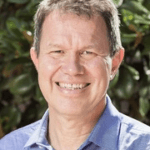Help Fill Knowledge Gaps In Climate And Biodiversity Science
Submissions are now closed. Thank you for your inputs.
Future Earth is conducting a horizon scanning on the knowledge gaps in climate change and biodiversity sciences to inform the development of Horizon Europe’s 2025-2027 work program and beyond. Horizon Europe is the European Union’s key funding program for research and innovation, and with a budget of €95.5 billion, it is the largest research funding program in the world. This horizon scanning project will result in an independent expert report, published in early 2024 by the European Commission, and is intended to inform decision-makers both in Europe and globally.
Building off of the process of the 10 New Insights in Climate Science report, we are seeking the input of active researchers, across all disciplines, working with issues related to climate change and biodiversity sciences.
Inputs will help world-leading research funders identify where new research evidence is critical and needed, and share with us what you consider to be currently missing in climate change and biodiversity science research. Relevant topics span a very broad scholarship on the underlying dynamics and impacts of climate change, biodiversity, nature-based solutions, earth observations and other related sustainability science areas. The human dimension and the associated social sciences (such as behavioral science, economics, etc.) are important cross cutting themes in addressing these issues and integral when confronting the climate emergency. We are particularly interested in perspectives taking a systems approach and link to the goals set out by the Paris Agreement, the Kunming-Montreal Biodiversity Framework, and UN Sustainable Development Goals.
Editorial Board




Timothy A. Balag’kutu
Centre for Peace and Security Research, University of Professional Studies, Accra, Ghana
Ana Bastos
Max Planck Institute for Biogeochemistry
Anthony Capon
Monash Sustainable Development Institute
Fabrice DeClerck
EAT Forum/Alliance of Bioversity and CIAT, CGIAR




Langley DeWitt
University of Colorado, Boulder
Peter Edwards
ETH Zurich
Sirkku Juhola
University of Helsinki
Leila Niamir
International Institute for Applied Systems Analysis


Lisandro Roco
Faculty of Economics and Government, Universidad San Sebastián, Valdivia, Chile
Pallavi Saxena
Department of Environmental Sciences, Hindu College, University of Delhi
DATE
May 9, 2023AUTHOR
Monika BauerSHARE WITH YOUR NETWORK
RELATED POSTS
Program Now Available for the Year’s Top Sustainability Science and Innovation Event in Finland
Apply for the 2024 Pathways Autumn School: Transformative Research for a Just World and a Habitable Planet
Future Earth Experts Contribute to “10 Must Knows” as a Guide to Preserving Biodiversity